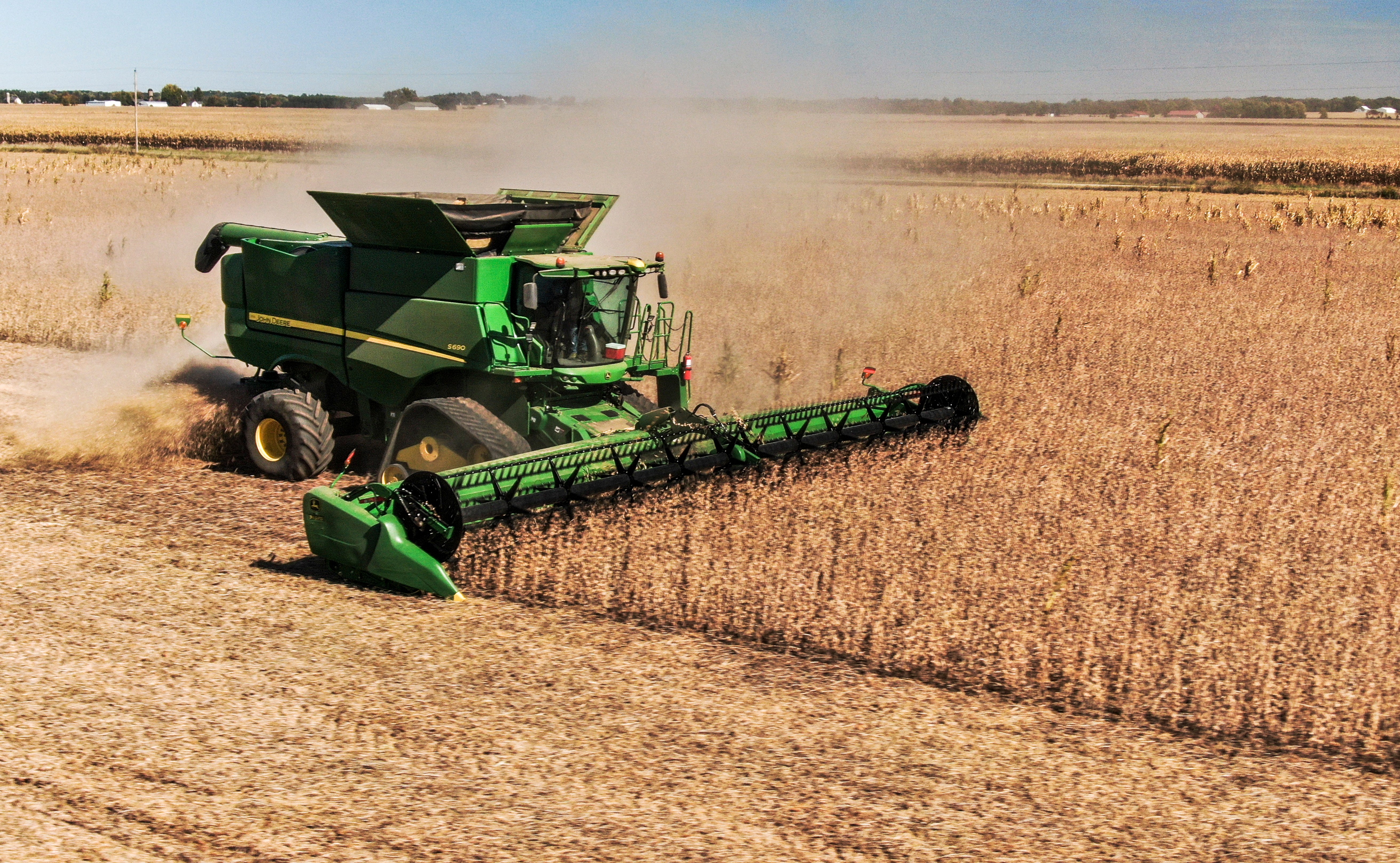America needs to support its farmers – here’s how we do it
On National Farmers Day it’s worth reflecting on the issues faced by a hardworking, unpretentious – and crucial – industry


Today is National Farmers’ Day. This is a day, according to the American Farm Bureau Federation, “to recognize [farmers’] contributions to each state and the nation.” As I recently experienced firsthand, those contributions are many and so very important.
Over the weekend, I visited Chaney’s Dairy Barn in Bowling Green, Kentucky. Established in the 1940s, the farm on which the restaurant and corn maze sit has been in the Chaney family ever since. However, that almost wasn’t the case. “Due to poor prices making for poor times in the dairy industry,” their website reads, the Chaneys “began the process of looking for new ideas to help save the family farm. In 2003, Chaney’s Dairy Barn was established allowing for the family farm to continue on.”
That was one year before I began college at nearby Western Kentucky University. Since then, Chaney’s Dairy Barn has grown into a true local icon and blue-ribbon winning producer of ice cream and other dairy products. No stop in Bowling Green is complete without a trip to Chaney’s.
The thought that this local treasure could’ve been lost is an upsetting thought. Even more upsetting, however, is the real struggle our independent farmers have in competing with agribusiness and factory farming. Over the past half-century, American farmers have gotten the short of end of the stick. Neoliberal economic policies embraced by both parties have made it difficult for small farmers to compete with Big Ag and globalized food systems – to the detriment of everything from the family farm to public health to the planet itself.
According to the United States Department of Agriculture, the number of farms in the United States stands at around 2 million – down from 6.8 million farms in 1935. 88 percent of these farms are classified as “small,” meaning their gross revenue does not exceed $350,000 per annum, according to Modern Farmer. This 88 percent only accounts for around 5 percent of the net farm income in the United States, with only 41 percent of small farms actually turning a profit. Most farmers, then, are forced to work another job.
The neoliberal policies begun under Ronald Reagan, and continued under successive administrations of both parties, account for much of the problem. Monetary policy in the 1980s led to a 60 percent drop in farm values, while record production forced prices down as exports fell by more than 20 percent. By 1984, farm debt was twice what it was in 1978.
This left many independent farmers incapable of competing with the large factory farms and big agricultural conglomerates. Today, more than 250,000 factory farms exist throughout the country. These farms make up most of the $134.7 billion America’s farms contribute to the economy. The largest four dairy co-ops alone control a 50 percent market share.
These large farms also make up most of the pollution generated by food production. Unlike family farms, which tended to protect the land and environment they passed down through the generations, these large corporate farms are motivated by profits to employ as little environmental safeguarding as necessary. Livestock farms alone generate as much as 70 percent of America’s ammonia emissions, to say nothing of other gases contributing to climate change.
Globally, “animal agriculture accounts for 14.5 percent of total anthropogenic greenhouse gas emissions annually,” Foreign Policy reports, as well as 60 percent of nitrous oxide and 50 percent of all methane emissions. In Duplin County, North Carolina (where my mother lived for many years), hog waste from the factory farms weighed as much as human waste for the entire city of Boston, Massachusetts. Residents actually sued because of the negative effects these large hog farm factories had on their health and environment
This is to say nothing about the quality of life those animals experience on factory farms. These pitiful creatures live in dark, cramped conditions and are frequently tortured before being slaughtered. As Kathie Jenni, a professor of philosophy and director of human-animal studies at the University of Redlands wrote in a letter to the Los Angeles Times, “[p]igs, cows and chickens are boiled to death, suffocated, hung upside-down to bleed out and (in the case of male chicks, who will not lay eggs for profit) ground up alive in giant blenders.”
This is not what God, what nature, or even what the Founding Fathers intended. America was founded as a nation of yeoman farmers. Obviously, those days are behind us; urbanization saw to that. However, that does not mean we cannot do something about the scourge of factory farming. We can create policies that disincentivize such terrible farming conditions while promoting family and independent farms. We should be subsidizing small farms, not big agribusiness. We can build school-to-farm pipelines by encouraging agricultural education in our schools and colleges. We can continue to create and support local farmers’ markets, creating spaces within our communities for our small farmers to sell their goods and compete with the large factory farms. We can enforce anti-trust laws in the agricultural sector. And we can pass laws that protect both animals and the environment from the scourge of factory farming.
There are things we as individuals can do, too. We can limit our meat intake to once or twice a week or buy from local farmers who treat their livestock humanely. We can grow our own food or buy from our local produce farmers. We can research the origins of our foods, write our elected representatives, and demand politicians support our neighbors over their corporate donors and Big Ag.
Hardworking and unpretentious, our farmers make up the beating heart of the heartland and grow the grain that gives the breadbasket its name. It’s why I am proud to wear my new “Support Your Local Farmer” shirt today – a shirt I was happy to buy at Chaney’s Dairy Barn, because I am proud to shop locally and to support the farmers in my community.
American farmers need the help of the American people, and the American people need American farmers. On this National Farmer’s Day, let’s renew our commitment to them by ending our reliance on factory farming and committing to supporting America’s small farms.
Join our commenting forum
Join thought-provoking conversations, follow other Independent readers and see their replies
Comments
Bookmark popover
Removed from bookmarks